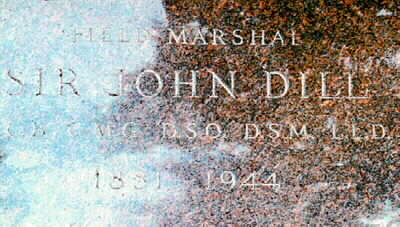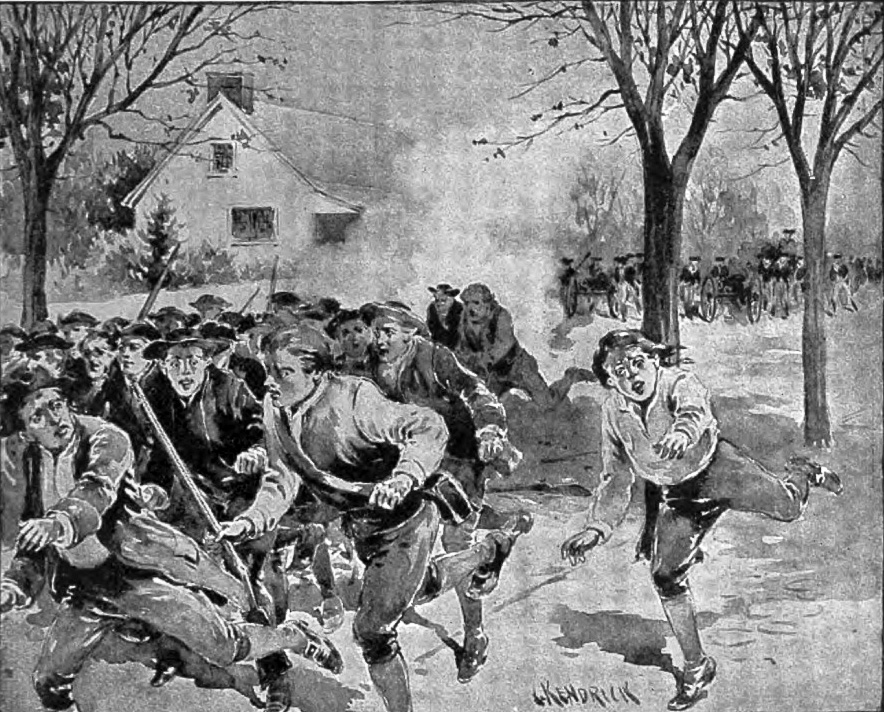22nd of December
1691 - Patrick Sarsfield and The Wild Geese sail out of Cork harbour for France
1740 - Joseph Stock, bishop and author, is born in Dublin
1761 - Dorothea Jordan born in Ireland, French comedic actress
1830 - Justin M'Carthy born in Cork, Ireland, Irish politician/novelist (Miss Misanthrope)
1863 - Michael Corcoran, Union Brigadier-General, dies at 36
1888 - Heavyweight Boxing Champion John L Sullivan challenges Jake Kilrain
1919 - "The Better Government of Ireland Bill" (Government of Ireland Act of Power) proposes two home rule parliaments, for the six north-eastern counties and the remaining 26, to come into effect in May 1920
1948 - Birth of TV presenter, Noel Edmonds
1961 - Marcus O'Sullivan (Villanova), athlete, is born in Cork
1965 - The Succession Act secures to widows a third of the estate (half if they have no children) and empowers the court to make provisions for children
1974 -The London home of the Conservative leader and former Prime Minister Edward Heath is damaged from the impact of a bomb planted by the IRA. The attack comes just hours before a Christmas truce is due to come into effect
1989 - Death of Samuel Beckett
1997 - Northern Ireland Secretary Mo Mowlam battles to save the Stormont talks from total collapse as four Ulster Unionist MPs withdraw their support for their party's continuing participation in the negotiations
1997 - The funeral of former Minister for Agriculture, Jim Gibbons, takes place in his native Kilkenny
1998 - Legislation to ensure the compilation of a full record of the country's important buildings and monuments which should be protected is circulated by the Minister for Arts, Heritage, Gaeltacht and the Islands, Sile de Valera
2002 - The Minister for the Marine, Dermot Ahern, warns about the possibility of a "war on the seas" as a result of the failure by the European Union to agree on a policy relating to the Irish Box fishing area.
St. Ernan of Donegal
Died about 640. He is mentioned in the Martyrology of Tallagh on 1 January. He was a nephew of St. Columba, Feilim or Feidhlimidh (St. Columba's father) being his paternal grandfather. Owing to this relationship, some writers have mistaken our saint for Ernan of Hinba, an uncle of St. Columba. His monastery in Ireland was at Druim-Tomma in the district of Drumhome, County Donegal. Adamnan relates the wonderful vision he had on the night St. Columba died (Vit. S. Col., III, 23). Ernan, with some companions, was fishing in the River Finn, in Donegal. Suddenly at midnight he beheld the whole sky brightly illuminated. Looking towards the east he perceived an immense pillar of fire shining as the sun at noonday. This marvellous light then passed into the heavens, and a great darkness followed, as after the setting of the sun. This wonderful occurrence was related to Adamnan by Ernan himself, who at the time is described as "a very old man, a servant of Christ, whose name may be rendered Ferreolus, but in Irish Ernene (of the clan Mocufirroide), who, himself also a holy monk, is buried in the Ridge of Tomma (Drumhome) among the remains of other monks of St. Columba, awaiting the resurrection of the saints". Some writers style this St. Ernan, Abbot of Druim Tomma. It is uncertain whether he visited Scotland, nevertheless he is regarded as patron saint of Killernan, in Ross-shire; and it may be that the dedications of Kilviceuen (church of the son of Eogan) in Mull, and of Kilearnadale in Jura, Argyleshire, are in his honour. In the "Scottish Kalendars", collected by Bishop Forbes, his name appears as Ethernanus, and his commemoration is assigned to 21 and 22 December (pp. 170, 222, 243).
St. Ernan of Hinba
Lived in the sixth century. He was uncle of St. Columba, and one of the twelve who accompanied him from Ireland to Iona. He was brother of Ethnea, St. Columba's mother, and son of Dima, the son of Noe of the race of Cathaeir Ivor (Reeves, notes, p. 263). St. Columba appointed him superior of the community which he himself had established on the island of Hinba. The identity of Hinba has not been established with certainty. It may be Canna, about four miles N. W. of Rum (ibid., p. 264); but more likely it is Eilean-na-Naoimh, one of the Gaveloch Isles, between Scarba and Mull (Fowler's Adamnan, p. 87). Hinba was a favourite place of resort for St. Columba. There he was visited by St. Comgall, St. Cannich, St. Brendan, and St. Cormac. At the request of these holy men, St. Columba celebrated Mass, during which St. Brendan beheld a luminous globe of fire above St. Columba's head. It continued burning and rising up like a column of flame, till the Holy Mysteries had been completed (Adamnan, III, xvii). On another occasion, while visiting St. Ernan's monastery in Hinba, St. Columba was favoured with heavenly visions and revelations which lasted three days and nights (Adamnan, III, xviii). The death of St. Ernan was tragic. Being seized with an illness, he desired to be carried to Iona. St. Columba, greatly rejoiced at his coming, started to meet him. Ernan likewise hastened but when he was twenty-four paces from his nephew he fell to the earth and died. Thus was the prophecy of St. Columba fulfilled, that he would never again see Ernan alive (Adamnan, I, xlv).
Source: http://www.newadvent.org/cathen/05523a.htm
1691 - Patrick Sarsfield and The Wild Geese sail out of Cork harbour for France
1740 - Joseph Stock, bishop and author, is born in Dublin
1761 - Dorothea Jordan born in Ireland, French comedic actress
1830 - Justin M'Carthy born in Cork, Ireland, Irish politician/novelist (Miss Misanthrope)
1863 - Michael Corcoran, Union Brigadier-General, dies at 36
1888 - Heavyweight Boxing Champion John L Sullivan challenges Jake Kilrain
1919 - "The Better Government of Ireland Bill" (Government of Ireland Act of Power) proposes two home rule parliaments, for the six north-eastern counties and the remaining 26, to come into effect in May 1920
1948 - Birth of TV presenter, Noel Edmonds
1961 - Marcus O'Sullivan (Villanova), athlete, is born in Cork
1965 - The Succession Act secures to widows a third of the estate (half if they have no children) and empowers the court to make provisions for children
1974 -The London home of the Conservative leader and former Prime Minister Edward Heath is damaged from the impact of a bomb planted by the IRA. The attack comes just hours before a Christmas truce is due to come into effect
1989 - Death of Samuel Beckett
1997 - Northern Ireland Secretary Mo Mowlam battles to save the Stormont talks from total collapse as four Ulster Unionist MPs withdraw their support for their party's continuing participation in the negotiations
1997 - The funeral of former Minister for Agriculture, Jim Gibbons, takes place in his native Kilkenny
1998 - Legislation to ensure the compilation of a full record of the country's important buildings and monuments which should be protected is circulated by the Minister for Arts, Heritage, Gaeltacht and the Islands, Sile de Valera
2002 - The Minister for the Marine, Dermot Ahern, warns about the possibility of a "war on the seas" as a result of the failure by the European Union to agree on a policy relating to the Irish Box fishing area.
St. Ernan of Donegal
Died about 640. He is mentioned in the Martyrology of Tallagh on 1 January. He was a nephew of St. Columba, Feilim or Feidhlimidh (St. Columba's father) being his paternal grandfather. Owing to this relationship, some writers have mistaken our saint for Ernan of Hinba, an uncle of St. Columba. His monastery in Ireland was at Druim-Tomma in the district of Drumhome, County Donegal. Adamnan relates the wonderful vision he had on the night St. Columba died (Vit. S. Col., III, 23). Ernan, with some companions, was fishing in the River Finn, in Donegal. Suddenly at midnight he beheld the whole sky brightly illuminated. Looking towards the east he perceived an immense pillar of fire shining as the sun at noonday. This marvellous light then passed into the heavens, and a great darkness followed, as after the setting of the sun. This wonderful occurrence was related to Adamnan by Ernan himself, who at the time is described as "a very old man, a servant of Christ, whose name may be rendered Ferreolus, but in Irish Ernene (of the clan Mocufirroide), who, himself also a holy monk, is buried in the Ridge of Tomma (Drumhome) among the remains of other monks of St. Columba, awaiting the resurrection of the saints". Some writers style this St. Ernan, Abbot of Druim Tomma. It is uncertain whether he visited Scotland, nevertheless he is regarded as patron saint of Killernan, in Ross-shire; and it may be that the dedications of Kilviceuen (church of the son of Eogan) in Mull, and of Kilearnadale in Jura, Argyleshire, are in his honour. In the "Scottish Kalendars", collected by Bishop Forbes, his name appears as Ethernanus, and his commemoration is assigned to 21 and 22 December (pp. 170, 222, 243).
St. Ernan of Hinba
Lived in the sixth century. He was uncle of St. Columba, and one of the twelve who accompanied him from Ireland to Iona. He was brother of Ethnea, St. Columba's mother, and son of Dima, the son of Noe of the race of Cathaeir Ivor (Reeves, notes, p. 263). St. Columba appointed him superior of the community which he himself had established on the island of Hinba. The identity of Hinba has not been established with certainty. It may be Canna, about four miles N. W. of Rum (ibid., p. 264); but more likely it is Eilean-na-Naoimh, one of the Gaveloch Isles, between Scarba and Mull (Fowler's Adamnan, p. 87). Hinba was a favourite place of resort for St. Columba. There he was visited by St. Comgall, St. Cannich, St. Brendan, and St. Cormac. At the request of these holy men, St. Columba celebrated Mass, during which St. Brendan beheld a luminous globe of fire above St. Columba's head. It continued burning and rising up like a column of flame, till the Holy Mysteries had been completed (Adamnan, III, xvii). On another occasion, while visiting St. Ernan's monastery in Hinba, St. Columba was favoured with heavenly visions and revelations which lasted three days and nights (Adamnan, III, xviii). The death of St. Ernan was tragic. Being seized with an illness, he desired to be carried to Iona. St. Columba, greatly rejoiced at his coming, started to meet him. Ernan likewise hastened but when he was twenty-four paces from his nephew he fell to the earth and died. Thus was the prophecy of St. Columba fulfilled, that he would never again see Ernan alive (Adamnan, I, xlv).
Source: http://www.newadvent.org/cathen/05523a.htm













Comment